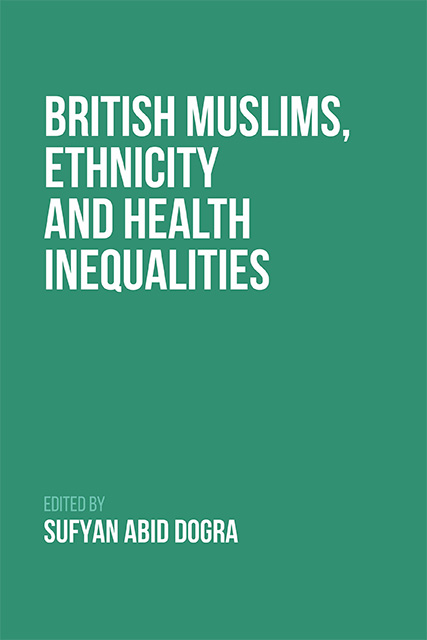5 - Genetic Health in British Muslim Populations: Analysis of Consanguinity, Interventions and Sociocultural Contexts
Published online by Cambridge University Press: 18 October 2023
Summary
Introduction
A consanguineous relationship is defined as a union between two people who are descended from the same biological ancestor and, in practice, who are related as second cousins or closer (Bittles 1994). More than 1 billion people globally are estimated to live in societies where consanguineous marriages are common (Bittles 2012), and across the world 15 per cent of babies born are from consanguineous parents (Bittles and Black 2010). The incidence of consanguinity varies by geographical region, with population frequencies of 20 per cent to over 50 per cent in some locations, including the Middle East, North Africa, and South and West Asia (Oniya et al. 2019). In contrast, the UK has a much lower rate of consanguinity (less than 1 per cent). However, transnational migration has resulted in a mix of communities within the UK, for some of whom the practice of consanguinity is customary and remains favoured. These include people of Pakistani, Bangladeshi and Middle Eastern origin (Modell and Darr 2002), communities that are predominantly Muslim.
Parental consanguinity is associated with an increased risk of giving birth to a child with a congenital anomaly, with studies showing that the risk increases from 1–3 per cent in the general population to 2–7 per cent in those practising consanguinity (Becker et al. 2015; Sheridan et al. 2013; Bittles and Black 2010). Much of the risk is attributed to the expression of genes that are inherited from the parents in an autosomal recessive manner. We usually have two ‘working’ copies of every gene. Should an individual inherit two ‘non-working’ copies of the same gene, then this may result in a recessive disease. Blood relatives are more likely to carry the same gene variants than unrelated couples; if both parents carry one copy of the ‘non-working’ gene, then their offspring has a one in four (25 per cent) chance of inheriting that recessive condition.
Congenital anomalies translate into higher infant and childhood mortality rates and increased prevalence of long-term health conditions and disabilities (Bittles 2012; Bittles and Black 2010; Bundey and Alam 1993).
- Type
- Chapter
- Information
- British Muslims, Ethnicity and Health Inequalities , pp. 103 - 123Publisher: Edinburgh University PressPrint publication year: 2023



